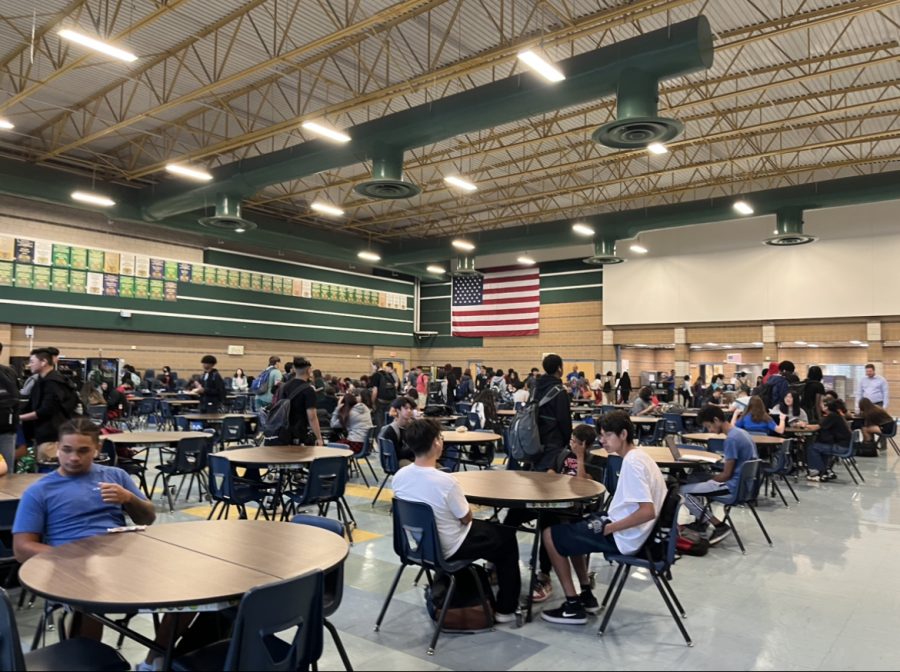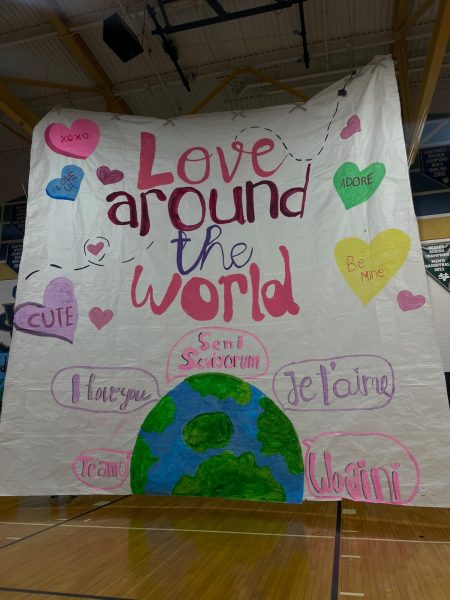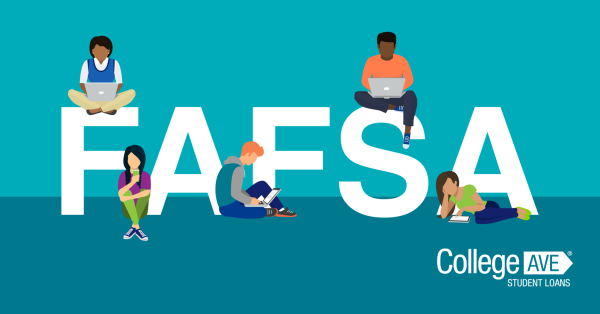Grizzly Den Policies and Procedures
Students planning on staying after school for clubs, sports, or tutoring must be in the “Grizzly Den,” or cafeteria by 1:30 p.m. or they won’t be let in unless they have a pass indicating they were with a teacher.
These changes were implemented last year during the fall when coming back from the pandemic at Spring Valley. Students in clubs or sports stay in the cafeteria after school until 2:01 p.m. They have to fill out a QR code so staff can take into account who is in the Grizzly Den. Students in a sport are called down by their coaches. If they are in a club they are released at 2:01 to go to their designated classrooms. Students staying for tutoring stay in the cafeteria and are escorted off campus when they’re done. This has created a lot of controversy among students staying after school.
“For example, if somebody calls a parent, or a parent calls, we can look at that registration [QR code] and know that this is where the student is.” Assistant Principal Jaclynn Rasnick said. “So it’s more for safety and just making sure that we know who’s there and which clubs are being utilized and which teams are utilizing it.”
Rasnick said she thinks the Grizzly Den has many advantages to it, especially during the hotter and colder months of the year. There are always tutors in the Grizzly Den whenever students need help with anything.
“It definitely is making a big impact because it’s a huge inconvenience that we can’t leave until two or until a teacher comes to pick us up,” said robotics member, Hailey Bucy. “The QR codes are very ineffective because some students don’t even bother filling the QR code out and just take a screenshot of it upon entry.”
Bucy is a part of the Spring Valley robotics club and does not think this new method is making a positive impact on her and her peers.
“I’m a part of the Spring Valley High School robotics club and we are here for long long hours, which makes us want to eat because if you’re there for almost two hours working hard, you’re gonna burn calories and that’ll increase your appetite.” Bucy said. “So what we used to do was someone would run down to the McDonald’s with a few people’s money and get us all food, but now we can’t do that without worrying if they’ll make it back before 2.”
However, the policy set in place for after school activities is a way to supervise students and assure parents that their kids are at school and in a safe place.
Solyana Yoseph, dual member of BSU and H.E.R club, stays weekly for club meetings.
“This is impacting me and my peers in a more negative way because there’s huge lines outside and you have to wait out in the sun to just get to the front to scan the QR codes,” Yoseph said. “It also takes forever to get inside and half the time when they’re supposed to be letting us in, they are not even there yet.”
Both Yoseph and Bucy think that the 1:30 p.m. closing time for the Grizzly Den is too early and it gives students little time to prepare. Many students mentioned either retaking a test, or getting something from home that they may have forgotten.
“The reason we close the Grizzly Den at 1:30 is because we’ve had people roaming and coming back, so we put it at 1:30 to clear the campus, so teachers could get work in.” Rasnick said. “We do accept passes from the teachers. We just need to know that, ‘Hey, they were with me.’”
Rasnick explained that even if students are staying after school to retake a test, the staff at the Grizzly Den need a pass from a teacher to let them know the student was retaking a test or was with them.
“If you’re going to get food just down the street, you should tell them at the door that you’re coming right back or have a sign in sheet to take into account the people leaving.” Bucy says. She thinks that these are some ways the school could improve the Grizzly Den procedures.
School safety has been an area of concern over the years due to mass school shootings, and assaults and with the addition of closed campuses, like at Spring Valley it will help keep strangers and roamers off campus.
“It reduces the amount of people walking around because we only have so many people on campus, so it helps with the overall safety of teachers, staff, students, even the community alike.” Rasnick said.




